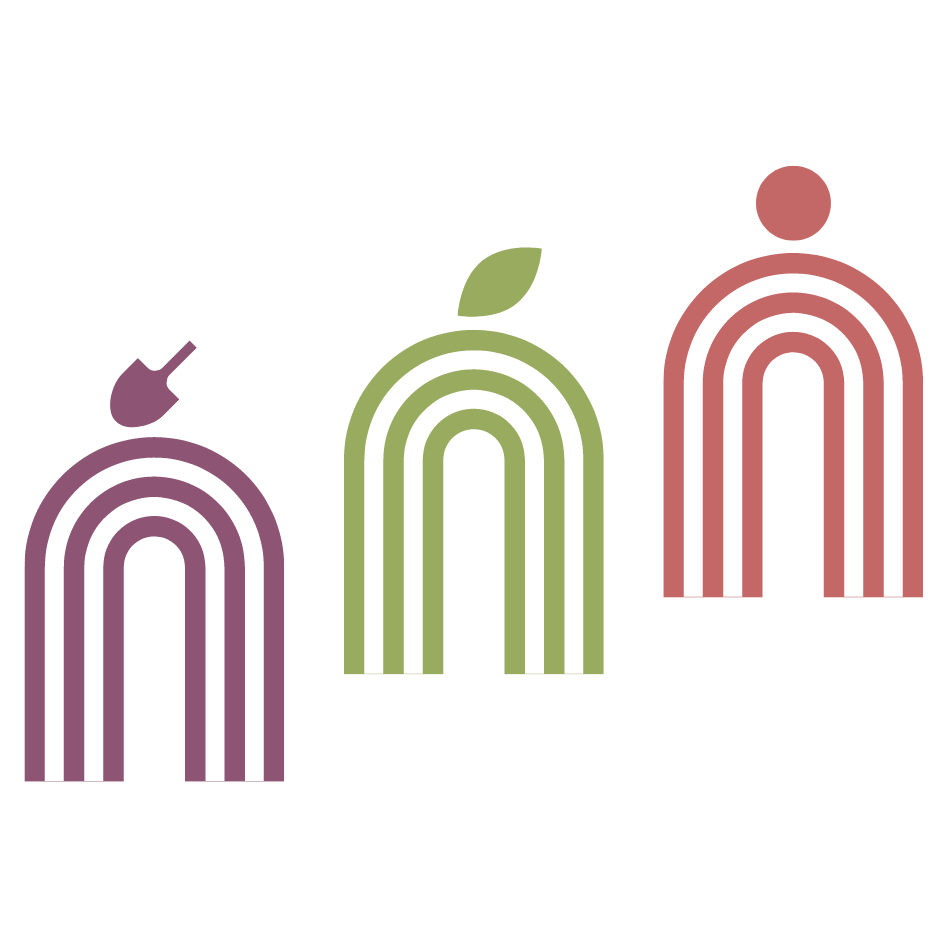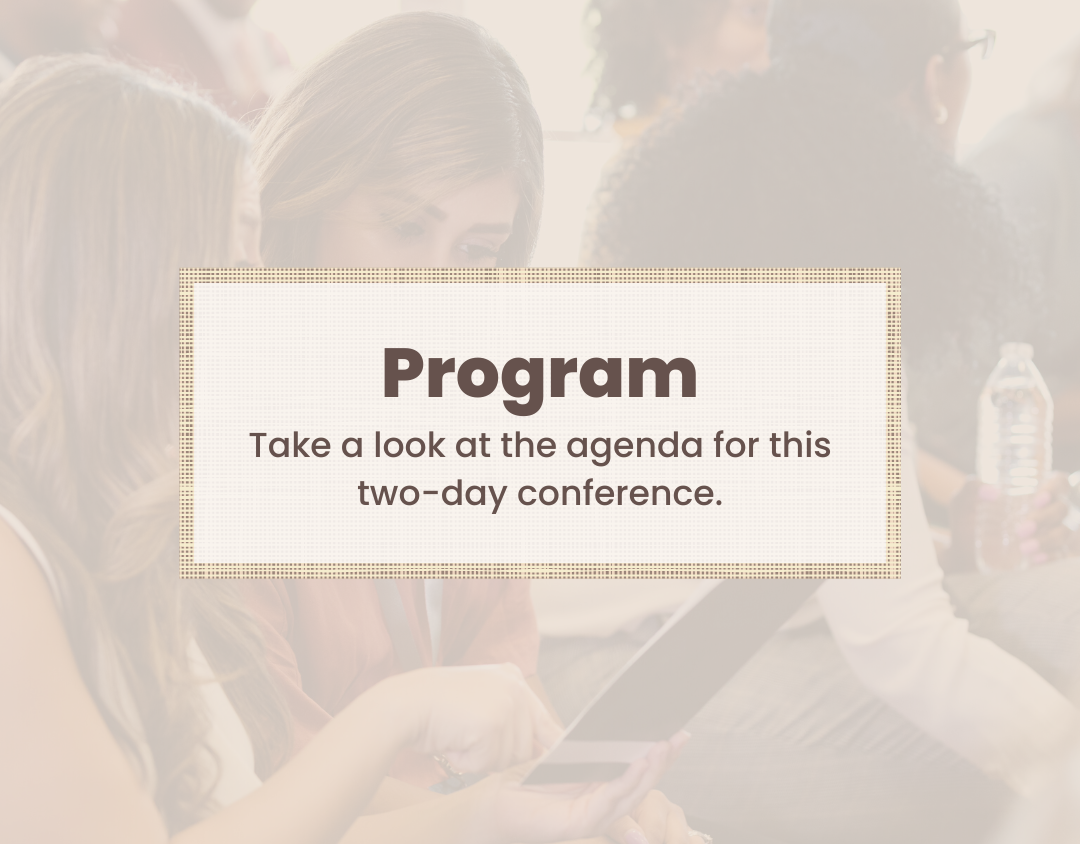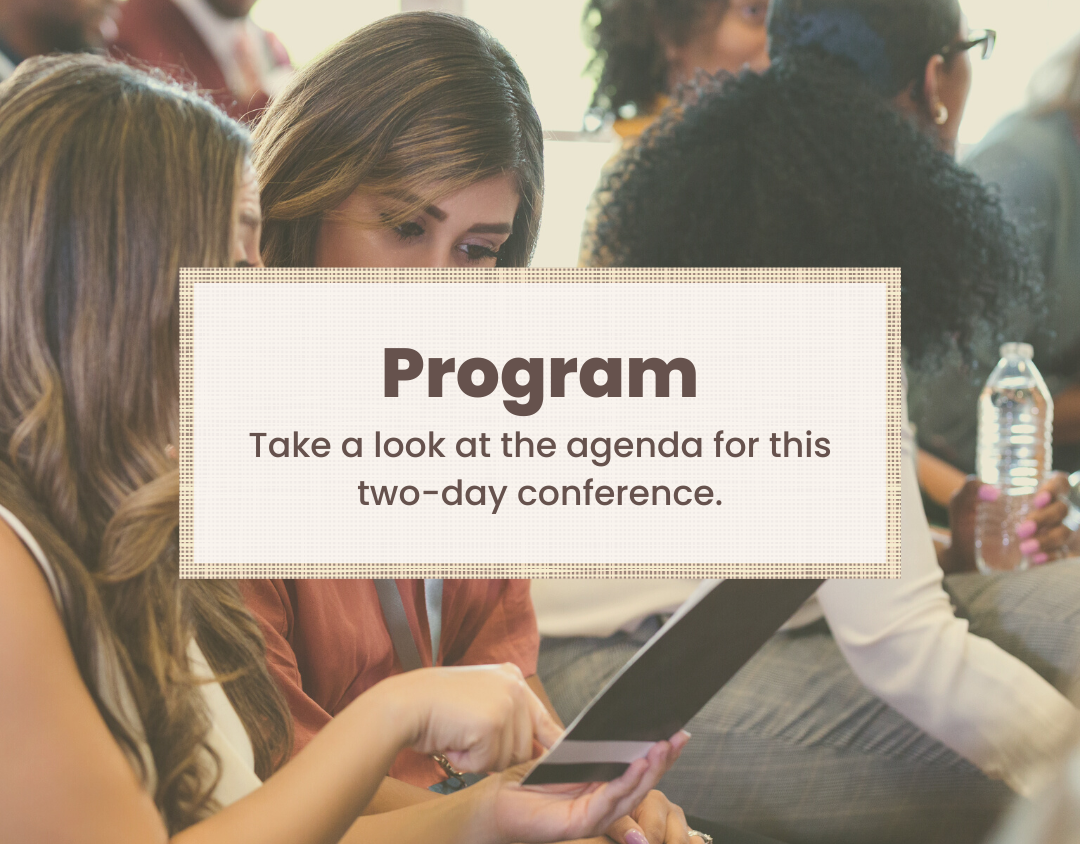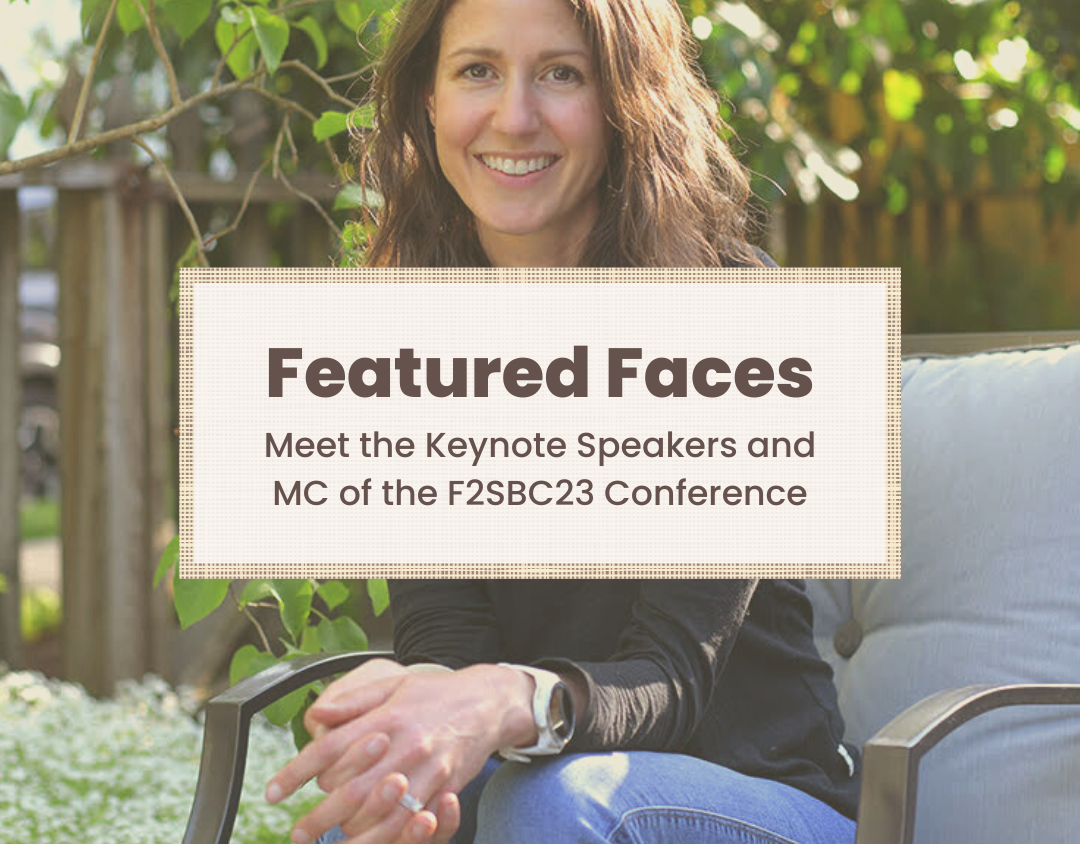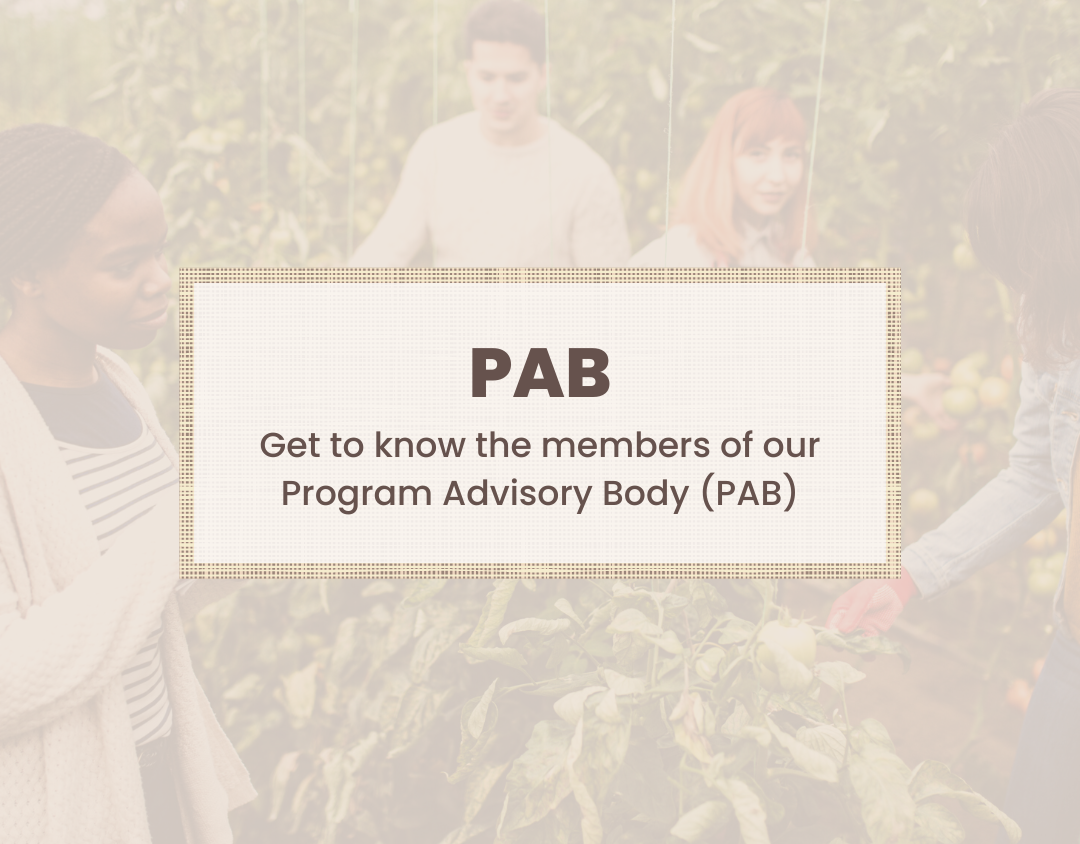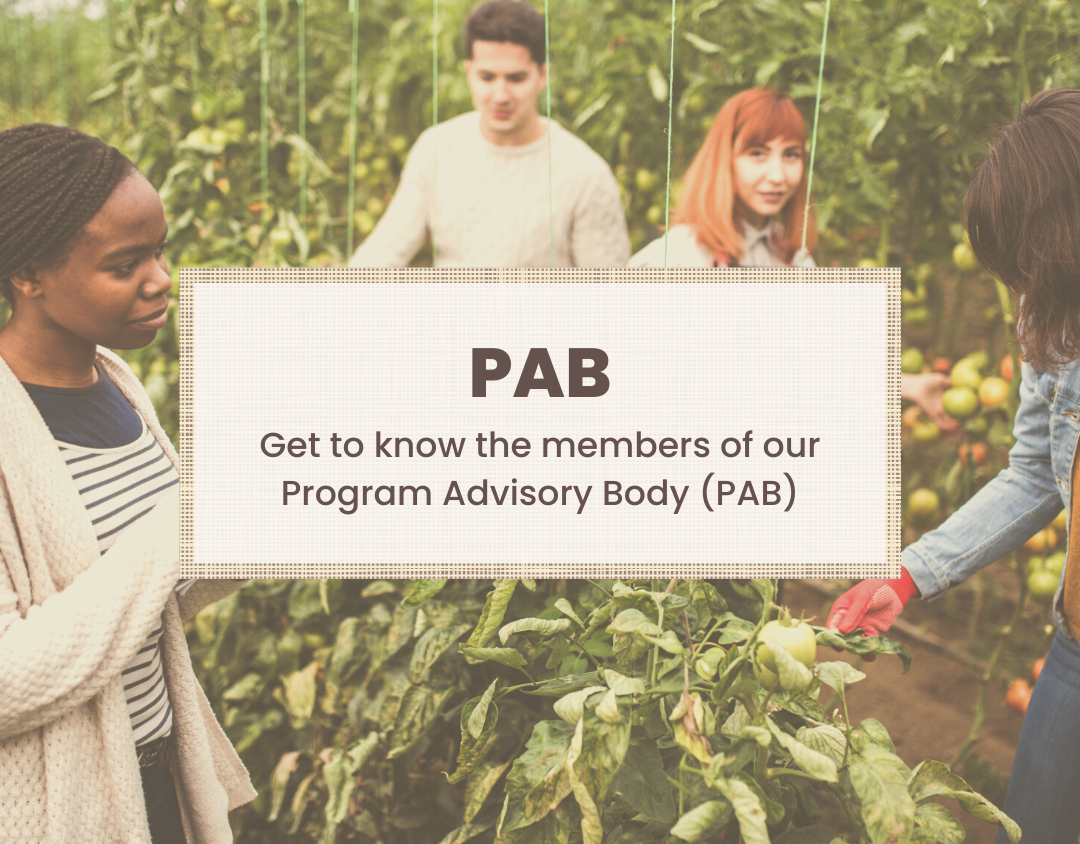Conference Sessions
Workshops, Short Talks, Posters
and Panel Presentations
and Panel Presentations
THURSDAY MAY 18TH
Block A: Short Talks and Stories (10:45 – 11:45 am)
Block A: Short Talks and Stories (10:45 – 11:45 am)
Youth Education in Community Spaces
Presenter: Naomi Kulhawy, KinPark Youth Urban Farm Manager, Cowichan Green Community
Presenter: Naomi Kulhawy, KinPark Youth Urban Farm Manager, Cowichan Green Community
KinPark Youth Urban Farm operates in a community park in the heart of Duncan. The program focuses on inspiring, training, and equipping youth of all ages in growing food in an urban setting. In this session, Naomi shares how Cowichan Green Community established an urban farm in a community park, the variety of connections that have been made with schools across the region, and how students are engaged in outdoor farm related activities throughout the school year.
Seed the City: Growing Food and Future Food Leaders on School Grounds
Presenter: Julia Onderwater, Education Coordinator at LifeCycles Project Society
Presenter: Julia Onderwater, Education Coordinator at LifeCycles Project Society
Seed the City is a program that emphasizes school farming in conjunction with youth skill development and career pathways in sustainable agriculture. This program, developed by LifeCycles Project Society and TOPSOIL Innovative Urban Agriculture, includes a unique farming model that is well-suited to efficiently growing food on school grounds. It also includes an accredited work experience program that provides youth with transferable skills and opportunities to explore career pathways in sustainable agriculture. Seed the City highlights the importance of including food growing in the education system for curriculum connections, skill development, and the physical and mental wellbeing of students.
Lessons from the Land:
Promoting Indigenous Food Sovereignty in an Urban School Community
Presenter: Laurie LaBrecque, Land-Based Learning and Physical Education teacher in the Toronto District School Board, member of Dokis First Nation
Promoting Indigenous Food Sovereignty in an Urban School Community
Presenter: Laurie LaBrecque, Land-Based Learning and Physical Education teacher in the Toronto District School Board, member of Dokis First Nation
Kapapamachakwew-Wandering Spirit School (TDSB) has seen students thrive through the implementation of a land-based learning class centred on Indigenous food sovereignty. This presentation is geared toward educators looking to build upon or begin a program like this from the ground up. Attendees will learn ways educators can provide students with rich and authentic learning experiences by taking inspiration for their lessons from the land. It will specifically discuss urban school farming and our experiences of incorporating traditional Indigenous food ways in our land-based learning program. Attendees will participate in a short activity and will have example lesson plans that they can then use in their own practice.
School Gardens in an Urban Environment
Presenter: Kathleen Scott-Houchen, M.A., B.A., B.Ed., Site Supervisor, Island Natural Science School, Toronto Outdoor Education Schools, Toronto District School Board
Presenter: Kathleen Scott-Houchen, M.A., B.A., B.Ed., Site Supervisor, Island Natural Science School, Toronto Outdoor Education Schools, Toronto District School Board
The Island Natural Science School is located on the Toronto Islands and is part of the Toronto District School Boards outdoor education program. Students from across the City of Toronto, visit and participate in science based outdoor learning for day, and overnight programs. This presentation will highlight the triumphs and challenges of urban gardening with raised beds, an indigenous garden, greenhouse and hydroponic gardens. Programs center on grade 6 and elementary school-aged students, connecting them to environmental stewardship, biodiversity, and energy consumption in the heart of Toronto. The gardens at the Island School allow students to grow, plant and build different types of gardens.
The Culinary Table
Presenter: Chef Namrata Erasmus, SAS Secondary Sullivan, SD 83
Presenter: Chef Namrata Erasmus, SAS Secondary Sullivan, SD 83
The farm-to-table movement has transformed the food industry and education system, inspiring schools to teach students about fresh and healthy food concepts. At Salmon Arm Secondary Sullivan, a high school located in the unceded territory of the Tk‘emlúpsemc, Secwepemc people, the Culinary Arts program has embraced this trend. The program was revamped to promote locally sourced, scratch-made dishes, introducing students to basic butchery, patisserie, and hospitality skills. The program has expanded its reach to cater events throughout Salmon Arm and provide meals to Okanagan College. This session will showcase how farm-to-table and grow-your-own initiatives have been incorporated into the program, and how educators can implement them in their classrooms.
Wild Harvest: Using Immersive and Interdisciplinary Methods to Educate and Inspire Students
Presenters:
Shauna Anderson, Galiano Food Program
Alison Colwell and Emma Luna Davis, Galiano Food Program Coordinators
Presenters:
Shauna Anderson, Galiano Food Program
Alison Colwell and Emma Luna Davis, Galiano Food Program Coordinators
Discover how our K-7 elementary school hosted Nettlefest, a whole school event where students learned about the sustainable harvesting of wild nettles. Students rotated through activity stations for nettle cooking, art and literacy, science, and games, culminating in a whole school feast cooked by students, fostering community engagement.
What's Growing On? Sooke School District and Food Since 2018
Presenters:
Rowan Bezeau, Teaching Chef, Royal Bay Secondary
Patrick Gale, Teacher, Edward Milne Community School, Sooke School District
Presenters:
Rowan Bezeau, Teaching Chef, Royal Bay Secondary
Patrick Gale, Teacher, Edward Milne Community School, Sooke School District
Our session will review key steps in the growth and development of our interconnected Food Systems Education, School Garden, First Nations Food Traditions, Community partnerships, and School Meal programs across the Sooke School District. Break-out groups will begin to identify possible pathways towards growing relationships, the next steps in developing networks and partnerships, and assessing available and needed resources to move forward.
Farm to School BC's Guide to Growing a School Farm
Presenters:
Meryn Corkery, Community Animator, Farm to School BC
Aaren Topley, Provincial Manager, Can You Dig It
Sammy Blair, Food Security Coordinator, North Okanagan Land to Table Network
Presenters:
Meryn Corkery, Community Animator, Farm to School BC
Aaren Topley, Provincial Manager, Can You Dig It
Sammy Blair, Food Security Coordinator, North Okanagan Land to Table Network
Learn about the rising popularity of school farms in BC and how they align with food systems and educational models. This session offers a practical guide for school district administrators, educators, farmers, and communities interested in starting or expanding a school farm program. Gain insights on key considerations for success, from curriculum integration to community partnerships. Don't miss this valuable session on growing school farms in BC!
Between Two Schools: Our Journey to Establishing a School Farm in Squamish
Presenters:
Gaby Lech, Food Systems Coordinator, Squamish CAN
Krystle tenBrink, Executive Director, Squamish CAN
Sasha Wilmott, School Farm Manager, Squamish CAN
Presenters:
Gaby Lech, Food Systems Coordinator, Squamish CAN
Krystle tenBrink, Executive Director, Squamish CAN
Sasha Wilmott, School Farm Manager, Squamish CAN
Learn about the steps we took to build a 12,000 sq ft school farm in downtown Squamish. We will share how our non-profit partnered with SD48 to plan, establish, and maintain the school farm. We will speak to how students and community members have been involved - and continue to be involved - in the day-to-day and next phases of planning. We will touch on the practicalities of growing food onsite and how this increases our community’s capacity to grow local food, promote healthy eating, and provide invaluable learning opportunities for the students of Squamish.
Digging into the Farm and Local Food to School Movement in British Columbia
Presenters: Elina Blomley (she/they), Dina Sadeghi (she/her), & Hafsa Salihue (she/her). Masters students at Simon Fraser’s Food Systems Lab through the Resource and Environmental Management (REM) Department.
Presenters: Elina Blomley (she/they), Dina Sadeghi (she/her), & Hafsa Salihue (she/her). Masters students at Simon Fraser’s Food Systems Lab through the Resource and Environmental Management (REM) Department.
This panel will present three case studies on the Local Farm to School (LF2S) programming in British Columbia (BC) with the goal of identifying the need to expand and provide both students and food growers equitable access to benefits of this programming as well as broader policy recommendations. Elina Blomley will discuss the role of planners in scaling up LF2S procurement for farmers in BC on the Agricultural Land Reserve. Dina Sadeghi will discuss the impact of the COVID-19 pandemic on LF2S and lessons learned on how to improve food system resiliency and improve policies for emergency preparedness. Hafsa Salihue will discuss the need to build local food infrastructure, explore diverse types of procurement, and suggest sustainable funding opportunities to facilitate procurement in schools
Planning for Place at the Table:
Local Food & Community Resilience in Northwestern BC
Presenters: Scott A. Brown, Graduate Student, University of Northern British Columbia
Local Food & Community Resilience in Northwestern BC
Presenters: Scott A. Brown, Graduate Student, University of Northern British Columbia
Scott's research explores the relationship between local food systems and community resilience through the lens of a comparative case study of Terrace and Prince Rupert in Northwestern, BC. Findings from policy analysis and 20 interviews with local food advocates highlight the need to recognize food as more than a commodity. Food is culture, food is place. I will share how holistic policy action is needed to strengthen food system ties within our communities and that support for educational programs that enhance social learning through intergenerational knowledge sharing is at the forefront of creating change within our local food systems.
THURSDAY MAY 18TH
Block B: Workshops (1:00 – 2:30 pm)
Block B: Workshops (1:00 – 2:30 pm)
Getting Indigenous Foods into Schools
Presenter: Jared Qwustenuxun Williams, Proud Father and Husband, Indigenous Food Sovereignty Champion, Award Winning Writer, Accomplished Chef, Indigenous Foods and Culture Educator, and Hul’q’umi’num Language Learner
Presenter: Jared Qwustenuxun Williams, Proud Father and Husband, Indigenous Food Sovereignty Champion, Award Winning Writer, Accomplished Chef, Indigenous Foods and Culture Educator, and Hul’q’umi’num Language Learner
Building on learnings from the Feed BC Traditional Food and Indigenous Recipes Study in B.C. Public Institutions, this workshop shares Qwustenuxun and the team’s insights gained through engagement with Indigenous Chefs and Knowledge Keepers across B.C. about the many ways schools can grow understanding of Indigenous foods, culture, and history. This will assist schools in the relationship-building necessary to work respectfully with Indigenous communities across a range of school-based approaches.
Sharing Impacts and a Framework for Evaluating Farm to School in Canada
Presenter: Jesse Veenstra, Executive Director, Farm to Cafeteria Canada
Presenter: Jesse Veenstra, Executive Director, Farm to Cafeteria Canada
In 2021 Farm to Cafeteria Canada released the Farm to School Evaluation Framework for Canada to inform our own evaluation work and to give school communities, researchers and policy makers guidance on how they can measure what matters. In this session, we will share how we have evaluated and communicated the impacts of our Farm to School Canada Grants program and created a Framework for future Farm to School evaluation work in the country. This participatory session will provide attendees with knowledge and tools that can be applied when evaluating their own programs.
Student Engagement Strategies for School Food Programs
Presenter: Danielle Findlay, Supervisor of Community Relations, Ontario Student Nutrition Program, VON Canada
Presenter: Danielle Findlay, Supervisor of Community Relations, Ontario Student Nutrition Program, VON Canada
This session will explore how student engagement enhances program outcomes and how to use school food as a tool for connection. Involving children and youth in program planning gives a voice to those with lived experience and helps to shape programs based on the unique needs of those they aim to serve. In addition to highlighting meaningful engagement opportunities, we will discuss how student involvement can help to ensure that programs are equitable and inclusive.
Food Explorers and Food for Us: Help Kindergarten to Grade 3 students build confidence to enjoy a wide variety of foods.
Presenters:
Joel Barohn, MS, RD (CAN/US), Chef Manager of Nutrition and Health Programs at BC Dairy Association, Adjunct Professor at The University of British Columbia.
Erica Cahill, RD, Nutrition Educator at BC Dairy Association
Presenters:
Joel Barohn, MS, RD (CAN/US), Chef Manager of Nutrition and Health Programs at BC Dairy Association, Adjunct Professor at The University of British Columbia.
Erica Cahill, RD, Nutrition Educator at BC Dairy Association
“Food Explorers” and “Food for Us” are food literacy programs for kindergarten to grade 3 students that support the development of healthy eating habits and help them learn where their food comes from. Developed by registered dietitians and filled with opportunities for experiential learning and tasting, they provide teachers with fun, straightforward lesson plans that meet BC curriculum standards.
This workshop provides teachers with an overview of the programs and program materials, competent eating concepts for young learners, and strategies to help students develop positive feelings around food and eating.
Teaching and Talking about Food:
Using a Food Exploration Approach to Nutrition Education
Presenters:
Emilia Moulechkova, RD, MPH, Population Health Dietitian, Northern Health Authority
Meghan Molnar, RD, Public Health Dietitian, Vancouver Coastal Health Authority
Simone Jennings, RD, Public Health Dietitian, Interior Health Authority
Using a Food Exploration Approach to Nutrition Education
Presenters:
Emilia Moulechkova, RD, MPH, Population Health Dietitian, Northern Health Authority
Meghan Molnar, RD, Public Health Dietitian, Vancouver Coastal Health Authority
Simone Jennings, RD, Public Health Dietitian, Interior Health Authority
How we teach and talk to children about food and nutrition has a lasting impact on their health. In this interactive workshop participants will learn how to use food exploration to support children to develop long-term healthy eating behaviours and attitudes that connect to the BC Curriculum. Participants will get to explore new, BC-specific resources for teaching about food, nutrition and Canada’s Food Guide, such as Teach Food First and Hands on Food.
FRIDAY MAY 19TH
Block C: Short Talks and Presentations (10:30 am – 12:00 pm)
Block C: Short Talks and Presentations (10:30 am – 12:00 pm)
Round 1 (10:30 am - 11:00 am)
The McLeod Story: It Takes a Village to Grow a Farm-to-School Program
Presenters:
Matthew Reimer, Teacher and Farm to School Lead, WL McLeod Elementary School
Michelle Roberge, Farm to School Advocate, Nechako Valley Food Network and McLeod F2S founding parent volunteer.
Presenters:
Matthew Reimer, Teacher and Farm to School Lead, WL McLeod Elementary School
Michelle Roberge, Farm to School Advocate, Nechako Valley Food Network and McLeod F2S founding parent volunteer.
WL McLeod Elementary School’s Farm to School was developed from over a decade of partnerships, patience and passion (the 3-P’s) from not only the school community but the entire community of Vanderhoof. This presentation will take you through our journey from a one-day-a-week salad bar, to a large-scale growing and meal program, with a focus on food security and a sense of community for all students at our school. Our hope is to inspire other schools to plan big and show that anything is possible with partnership, patience and passion.
Setting the Table: Nourishing Learning With Food for Everyone
Presenters: Matthew Kemshaw, Setting the Table Executive Coordinator and F2SBC Regional Community Animator
Presenters: Matthew Kemshaw, Setting the Table Executive Coordinator and F2SBC Regional Community Animator
Setting the Table is a pilot program serving 200 meals per day to 8 schools in the Sooke School District #62. Our long-term goal is to support nourishing food environments in schools to ensure all students in our region can eat well, together. This fast-paced presentation will describe how we built this initiative, where we see it going, and some of the challenges and opportunities we've identified thus far.
Presented by Matthew Kemshaw, Setting the Table Executive Coordinator (wage supported by Farm to School BC and the Victoria Community Food Hubs Society, project also supported by the Capital Region Food Share Network and the Mustard Seed).
Gathering Stories from the Land: Indigenous-Focused School Food Programming Landscape in BC
Presenter: Sue-Anne Banks, Indigenous Lead - BC Chapter of the Coalition for Healthy School Food administered by the Public Health Association of BC
Presenter: Sue-Anne Banks, Indigenous Lead - BC Chapter of the Coalition for Healthy School Food administered by the Public Health Association of BC
A collection of Indigenous school food stories from different perspectives and locations across BC. It is further understood through storytelling, the landscape of the school food environment through highlights and barriers being faced in providing healthy school food programming and the inclusivity of traditional cultural food in some BC schools. We will hear stories from First Nation community schools, voices of Indigenous food sovereignty and food security, as well as the insights of a First Nation Chef.
Sowing Seeds for the Future: Chicago’s School Garden and Food Justice Movements
Presenter: Ilana Marder-Eppstein
Presenter: Ilana Marder-Eppstein
Chicago Public Schools (CPS) is the third largest school district in the United States with over 650 schools serving 300,000+ students. About 400 CPS schools have gardens. This presentation will focus on replicable models for supporting a large network of school gardens with a small team. Additionally, participants will learn about the historical context for food apartheid in Chicago and the role that school gardens play in the food justice movement in Chicago and beyond
Growing in the City:
The Impact of Municipal Support In Fostering School Gardens
Presenter: Alex Harned, Food Systems Coordinator with the City of Victoria
The Impact of Municipal Support In Fostering School Gardens
Presenter: Alex Harned, Food Systems Coordinator with the City of Victoria
'Growing in the City' (GITC) is a municipally led initiative developed to increase gardening and food production opportunities within Victoria. GITC develops programs and grants that support community gardening, boulevard gardening, the cultivation of food trees, and home gardening, including the award-winning garden materials distribution program, 'Get Growing, Victoria!'. This presentation will provide a brief background of ‘Growing in the City’ and a comprehensive overview of how GITC supports school gardens. We will explore stories of growth, community collaboration, and capacity building, and demonstrate the role municipal government can have in promoting, supporting, and strengthening the development and sustainability of school gardens.
Food Literacy in the Ontario Curriculum:
Moving Towards Change in Policy and Practice
Presenter: Carolyn Webb, Ontario Edible Education Network Coordinator, Sustain Ontario
Moving Towards Change in Policy and Practice
Presenter: Carolyn Webb, Ontario Edible Education Network Coordinator, Sustain Ontario
How can we work with decision-makers to move the needle on food literacy? This session will share how a private members bill and strong collaborative advocacy resulted in food literacy expectations in the Ontario school curriculum. The presentation will share insights, lessons learned and next policy steps, as well as an overview of Sustain Ontario’s new “Food is Science” project and website, which aims to support teachers in understanding and teaching new food and food systems curriculum content.
STUDENT SPOTLIGHT
Fun with Fungi
Presenters: Abigail Lamontagne, Robyn Ruff, Pranavi Ahluwalia and Dylan Rouselle
Fun with Fungi
Presenters: Abigail Lamontagne, Robyn Ruff, Pranavi Ahluwalia and Dylan Rouselle
This is an introductory workshop for people interested in learning more about fungi and their potential roles in school gardens. We will be learning about how fungi are interconnected with other organisms, one technique used to identify fungi, some ideas on how to cultivate them, and different uses of mushrooms in school gardens.
Round 2 (11:00 am - 11:30 am)
Let's Set the Table for the LunchLAB Program!
Presenter: Tathali Urueta-Ortiz, Youth Curriculum & Empowerment Manager, Fresh Roots
Presenter: Tathali Urueta-Ortiz, Youth Curriculum & Empowerment Manager, Fresh Roots
Join us to learn about LunchLAB and the valuable lessons we've learned since its inception in 2019. We want to highlight participants' voices. Through firsthand accounts from participants, teachers, chefs, and staff, we'll highlight their experiences and insights. Engage in discussions about this theme and hear diverse voices. Don't miss this opportunity to gain insights into promoting healthy eating habits and food literacy among students.
From the Soil Up: Co-creating School and Community Garden Spaces
Presenters:
Sheila Wilson, Coordinator, Roberts Creek Community School
Ted Chisholm, Coordinator, Sechelt Community Schools
Vicky Duffield, Garden Education Facilitator, Roberts Creek Community School
Naomi Fleschhut, Sunshine Coast Community Animator, Farm to School BC
Presenters:
Sheila Wilson, Coordinator, Roberts Creek Community School
Ted Chisholm, Coordinator, Sechelt Community Schools
Vicky Duffield, Garden Education Facilitator, Roberts Creek Community School
Naomi Fleschhut, Sunshine Coast Community Animator, Farm to School BC
This presentation shares about the transformation of two underutilized school spaces into two unique growing, learning, and gathering places: The Roberts Creek Legacy Garden and Davis Bay Elementary Growing Green project. From the soil up, we’ll share some things we learned together in cultivating these school and community gardens - from visioning and co-creating the gardens with the school and community to growing food and building partnerships and systems to sustain these two unique garden spaces.
Planting & Growing: Building Capacity the SD91 Story
Presenters:
Darren Carpenter, District Career & Trades Programs Coordinator SD 91
Michelle Roberge, Farm to School Advocate and Nechako Valley Food Network
Stephanie Carpenter, Teacher, Evelyn Dickson Elementary SD91
Presenters:
Darren Carpenter, District Career & Trades Programs Coordinator SD 91
Michelle Roberge, Farm to School Advocate and Nechako Valley Food Network
Stephanie Carpenter, Teacher, Evelyn Dickson Elementary SD91
This presentation takes participants through three vantage points that, when combined through collaboration, can create a sustainable and successful food program. Using School District 91 as a case study, the presenters will explain the 3-point collaboration with School District staff (making the wide-view connections across schools), with community organizations (providing expertise, mentorship, and capacity building for a food program), and teacher/principal champions (working directly with students and making connections to curriculum and healthy living).
Think Outside: No Box Required Skeetchestn Land Based Learning
Presenters:
Shelaigh Garson, Regenerative Land Designer, EveryOne's Eden
Cari-Anne Hunt, Food Sovereignty Champion, Skeetchestn Community School
Presenters:
Shelaigh Garson, Regenerative Land Designer, EveryOne's Eden
Cari-Anne Hunt, Food Sovereignty Champion, Skeetchestn Community School
Our presentation will cover a system design approach to land-based learning with a focus on climate resiliency, and the symbiotic relationship between regenerative agriculture, and animal husbandry. The links between our initiatives and health are significant, and for Indigenous communities, tied to cultural livelihood, traditional knowledge, and well-being.
Ten Hands-On Agricultural Activities in Your Classroom
Presenter: Chris “Farmer” Brown, Farmer Brown Agriculturalist, Growing Opportunities Farm Community Cooperative, SD69
Presenter: Chris “Farmer” Brown, Farmer Brown Agriculturalist, Growing Opportunities Farm Community Cooperative, SD69
This session follows a theme of Agricultural Literacy and features 10 hands-on garden-based and seasonal activities you can do in your classroom and add to your teaching toolkit. Each activity has multicurricular connections with accommodations and will feature tasks that can be done over the school learning season.
Lessons Learned from Five Years of School Garden Coordination
Presenter: Robin Jenkinson, School Gardens Facilitator, Salt Spring Elementary
Presenter: Robin Jenkinson, School Gardens Facilitator, Salt Spring Elementary
Description coming soon!
Round 3 (11:30 am - 12:00 pm)
Using Technology for Food Literacy Education:
Experiences from a Hydroponic Shipping Container Farm Program
Presenter: Gabrielle Edwards, University of British Columbia
Experiences from a Hydroponic Shipping Container Farm Program
Presenter: Gabrielle Edwards, University of British Columbia
This presentation will highlight the results of a year-long case study conducted at a school implementing a food literacy program using a hydroponic shipping container farm (HSCF). The study found that the high-tech nature of the farm lead to enhanced student engagement with the program. However, the futuristic aspect of the farm could also lead to a further disconnect between students and food systems as well as disempower students from becoming actively involved in their food systems.
Full Circle Learning: Honouring Local Indigenous Knowledge & Wild Foraging in Sustainable Food Practice
Presenters:
Heather Iakotsén:tha Royal Brant - Indigenous Education SD71
Yolanda Lehton - Vice-Principal Denman Island Community School
Sadie Gibbs - Denman Island Community Education Society
Presenters:
Heather Iakotsén:tha Royal Brant - Indigenous Education SD71
Yolanda Lehton - Vice-Principal Denman Island Community School
Sadie Gibbs - Denman Island Community Education Society
Full Circle Foods aims to increase education and awareness while modelling the larger circle of respectful relationships that exist with local and sourced food. We present a framework for educators to organize learning and focus on different aspects of Indigenous foods such as gardening, foraging and fishing. We will show how the seasons segment garden and learning activities, and how Indigenous teachings weave cross-curricular. We will share how we are incorporating outdoor learning into classrooms to create student connection, respect, and inherent responsibility for different foods. This presentation will show how we acknowledge and celebrate traditional knowledge through garden-based and outdoor learning.
Exploring BC Teachers’ Tensions Related to Supporting Students’ Food Needs
Presenter: Raihan Hassen, RD, MSc Student, UBC
Presenter: Raihan Hassen, RD, MSc Student, UBC
While addressing students’ food and nutrition needs isn’t listed as an explicit role for teachers according to professional standard guidelines, evidence suggests that teachers fill a variety of unmet food needs for students.
This session outlines the tensions that fourteen grade 5-7 BC teachers feel when ensuring that students are well-fed and educated about healthy eating. Tensions relate to teachers’ perceptions of their responsibilities for caring for students’ food and nutrition needs, the realities of caring for students’ needs, and the impact it has on teachers’ workloads. Insights about teachers’ experiences can inform emerging school-based food and nutrition programs and policy.
Co-Creating our District School Garden Framework Process and Product
Presenters: Serina Allison, Lead Teacher, Comox Valley Environmental and Outdoor Learning
Presenters: Serina Allison, Lead Teacher, Comox Valley Environmental and Outdoor Learning
Comox Valley (SD71) is excited to share our co-learning and creative journey of School Gardens for Learning. Lead Environmental and Outdoor Learning Teacher, Serina Allison, will share the process of this district initiative, weaving in all aspects of the journey from co-learning guidance with Megan Zeni to a deeper understanding of local indigenous perspectives, and pre-view of the District School Gardens for Learning Framework. By sharing our story, we hope to inspire and further build the School Gardens for Learning community.
What We’ve Grown: Seeds of Inspiration and School Gardens
Presenter: Marisa Nichini, BSc, MA, Plant a Seed & See What Grows
Presenter: Marisa Nichini, BSc, MA, Plant a Seed & See What Grows
Discover Plant a Seed & See What Grows Foundation’s Seeds of Inspiration educational resources program and its impact on primary grades across Canada. Plant a Seed’s engaging resources work well in the classroom or out in the garden according to teachers and students from 3,000+ schools! Plant a Seed is also pleased to support more than 3 dozen garden projects from schools to multi-generational community gardens. There’ll be time for questions and the sharing of useful links to order resources and apply for garden funding. Plant a Seed continues to grow!
Provincial Impact: Farm to School BC External Evaluation 2020 - 2022
Jennifer Hystad, CE Partner, Howegroup
Jennifer Hystad, CE Partner, Howegroup
Using a Pecha Kucha presentation style, Howegroup will share the approach and key findings from the 2020 – 2022 provincial evaluation of the F2SBC program. The presentation will unpack the impact of F2SBC on students’ healthy eating, social-emotional health, alignment with curriculum and Indigenous Food Ways, and explore the effectiveness of the Community Animator model and program resources. Participants will also hear from a secondary student on their involvement with their own school garden and how the program has empowered leadership and capacity building.
STUDENT SPOTLIGHT
Our First Year with Bees: An Introduction to Bee-Keeping
Presenters: Pacific Academy - Nita Nagarajan, Alyssa Dekam, Kimberly Chow and Matthew Kemshaw
Our First Year with Bees: An Introduction to Bee-Keeping
Presenters: Pacific Academy - Nita Nagarajan, Alyssa Dekam, Kimberly Chow and Matthew Kemshaw
This “tasty” workshop will cover the ‘year one basics’ of bee-keeping on a school campus. With stories that cover the why, what, how, and obstacles we faced, you will come away with a clear picture of what it takes to host a beehive on your school campus. Finally, this workshop wouldn’t be complete without a taste of honey from our hives!!
FRIDAY MAY 19TH
Lunch: Poster Presentations (12:15 – 1:30 pm)
Lunch: Poster Presentations (12:15 – 1:30 pm)
Soil to Table in a Watershed: Nurturing and Restoring People and Places
Presenters:
Shai Kroeker, Environmental Educator, A Rocha Canada
Sandra Dumitras, Farm to Families Program Coordinator, A Rocha Canada
Presenters:
Shai Kroeker, Environmental Educator, A Rocha Canada
Sandra Dumitras, Farm to Families Program Coordinator, A Rocha Canada
In partnership with the Surrey School District's Community Schools Partnership (CSP), A Rocha Canada BC's Environmental Centre has designed a program for Grade 4-7 students from schools of complexity to experience growing seasonal vegetables, cooking with them and sharing food around the table. They also enjoy hands-on experiential learning in the Tatalu River watershed by exploring the forest, salmon spawning river and pond, deepening their understanding of the natural world and gaining indigenous knowledge.
Locally-Grown Weekend Meal Kits for Children
Presenters:
Robin Jenkinson, School Gardens Facilitator, Salt Spring Elementary
Polly Orr, Co-Lead, Grow Local
Presenters:
Robin Jenkinson, School Gardens Facilitator, Salt Spring Elementary
Polly Orr, Co-Lead, Grow Local
The mealkit program is an opportunity for students and their families to be exposed to new types of food, expands their local food literacy, and teaches the kids important cooking skills. Each kit includes an easy to follow recipe with all the necessary ingredients to each student who will take the kit home and cook the meal for their families. Produce is sourced from the school garden and local farms, with all supplementary ingredients local to B.C. Kits include enough ingredients for a family of four. These kits are hands-on opportunities to learn about the nutritional, environmental and economic advantages of eating local food.
Richmond Jewish Day School's Food Lab Program
Presenters:
Sabrina Bhojani, Head of School, Richmond Jewish Day School
Reesa Pawer, Director of Student Life, Richmond Jewish Day School
Presenters:
Sabrina Bhojani, Head of School, Richmond Jewish Day School
Reesa Pawer, Director of Student Life, Richmond Jewish Day School
Every few weeks, the students at Richmond Jewish Day School filter down the hallways following the smells of a delicious and nutritious free hot lunch. This presentation will provide an overview of the school’s “Food Lab Program” in which grade 4-7 students take an active part in helping with the preparation of school-wide meals, including chopping, grating and cooking healthy, plant-based ingredients for all to enjoy. Students participate in every level of the program from the garden to preparing a school-wide hot lunch, to serving. This multi-agency initiative made possible through the support of Jewish Family Services and Kehila Society is a powerful example of what can happen when community partners come together and collaborate, strengthening food security for families and the local community.
FRIDAY MAY 19TH
Block D: Workshops (1:30 – 3:00 pm)
Block D: Workshops (1:30 – 3:00 pm)
Becoming a Keeper of Bees
Presenter: Christine McDonald (she/her), Rushing River Apiaries, owner and beekeeper
Presenter: Christine McDonald (she/her), Rushing River Apiaries, owner and beekeeper
Christine is a beekeeper but she strongly believes that we are all keepers of the bees. In this interactive workshop, she will share how she turned a school full of K-8 students into beekeepers. The school now cares for two colonies of honeybees in the schoolyard, but more importantly, the students have grown to love these important pollinators through Christine’s workshops. Learn how you can help spread an appreciation for bees with or without hosting a hive.
Take a Bite of BC!
Presenter: Pat Tonn, BC Agriculture in the Classroom Foundation
Presenter: Pat Tonn, BC Agriculture in the Classroom Foundation
Take a Bite of BC by BC Agriculture in the Classroom Foundation provides fresh and fresh frozen, BC-grown products to school teaching kitchens. The products enhance the culinary students’ learning experience by enabling them to work with local products and provide awareness about the foods that are grown around them. Chef Instructors and the students are inspired to create recipes featuring these local products that are offered to the student population through the school cafeteria.
This program creates synergy between students, teaching chefs, the school and farmers from farm to fork all while building career skills. Experience firsthand, the program, the teaching resources, the farmer stories and the dishes produced! Use this presentation and provided teaching resources to build Farm to Fork education in schools or community classrooms.
Growing a School Garden
Presenters: Megan Zeni and Sarah Regan
School Garden and Outdoor Classroom Teachers, Homma Elementary School, SD 38, Richmond
Presenters: Megan Zeni and Sarah Regan
School Garden and Outdoor Classroom Teachers, Homma Elementary School, SD 38, Richmond
This workshop will share the process of co-creating our rebuilt school garden with over 500 K-7 elementary school students from the teacher's perspective. We will share how we prioritized the well-being of children by centring play in our garden planning, and by re-imagining where and how curricular learning happens in our school. This workshop will also share how we successfully navigated allocating multiple teaching positions dedicated to playing and learning in our school garden.
Seed Stewardship in the Classroom
Presenters:
Siri van Gruen - FarmFolk CityFolk
David Catzel - FarmFolk CityFolk
Matthew Kemshaw - Setting the Table and Farm to School BC
Carly Fraser - Royal Bay High School Student
Hiona Oyama - Templeton Secondary School Student
Presenters:
Siri van Gruen - FarmFolk CityFolk
David Catzel - FarmFolk CityFolk
Matthew Kemshaw - Setting the Table and Farm to School BC
Carly Fraser - Royal Bay High School Student
Hiona Oyama - Templeton Secondary School Student
Discover how to effectively incorporate FarmFolk CityFolk's collection of seed-saving presentations, games, and activities into your classroom in this dynamic talk that features real-life examples. Also engage with Carly, a passionate student from Royal Bay High School, as she shares the importance of seed saving and covers the basics of this crucial agricultural practice.
Advocating for School Food: A Skill-Building Workshop
Presenters:
Samantha Gambling, BC Chapter of the Coalition for Healthy School Food
Carolyn Webb, Coalition for Healthy School Food
Brent Mansfield, BC Chapter of the Coalition for Healthy School Food
Presenters:
Samantha Gambling, BC Chapter of the Coalition for Healthy School Food
Carolyn Webb, Coalition for Healthy School Food
Brent Mansfield, BC Chapter of the Coalition for Healthy School Food
This workshop will build on the keynote presentation introducing the Coalition for Healthy School Food and our advocacy for universal, healthy school food programs in BC and Canada. In this skill-building workshop, presenters will convene a discussion about how everyone can advocate and plan for school food programs at national, provincial and local levels. Participants will leave with increased confidence to engage in school food advocacy work, as well as specific tools, language, evidence, and strategies to push federal, provincial, and local decision-makers for stronger investment in school food programs.
